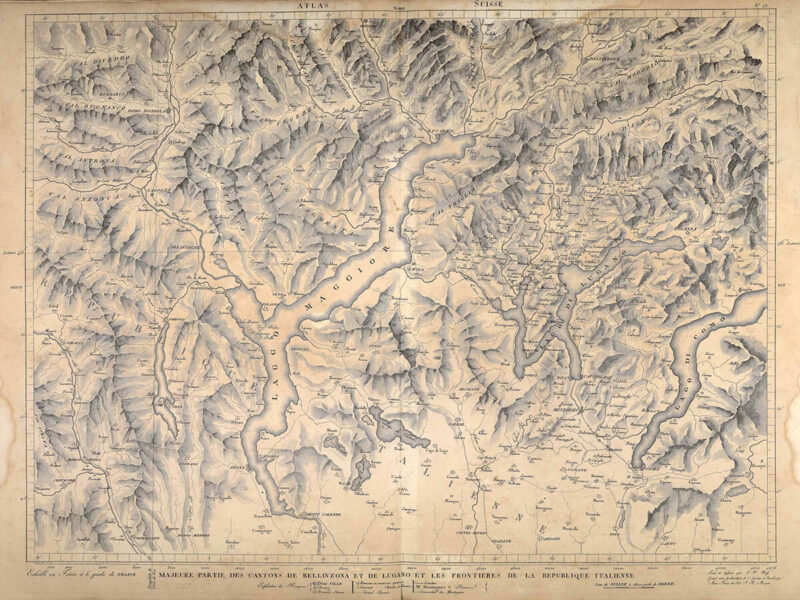The first phase of the municipal digitalization project has been completed: Historical and current documents available in electronic format
Digitalisation. Not just a word. Rather a mantra of our time. A mantra that tends to have a positive meaning, like terms such as ‘sustainability’ or ‘innovation’. But precisely because it is used – and often abused – in many areas, this mantra risks being reduced to a generic or abstract word, like many others we use in our everyday lexicon. In concrete terms, however, digitalization means above all two things: transforming paper documents and processes into digital data (scanning, archiving, electronic management); redesign workflows to make them faster, safer and more efficient, leveraging IT and technological tools.
In the context of a municipality, digitalization is not just a lexical fashion: has a direct impact on security (backup and data protection), preservation of historical memory and transparency towards citizens, who can access information more easily and quickly.
Brissago has taken a decisive step towards modernising its services: the complete digitalisation of archives and administrative flows. A process that not only concerns the daily management of mail or building practices, but also the preservation of the documentary heritage. And the ability to access it simply by typing a keyword.
‘The actual digitisation, i.e. the transition of paper documents to an electronic format, began two years ago and has been completed,’ explains Reto Repetti, the municipal authority responsible, inter alia, for the IT department. Today, all incoming and outgoing mail is handled digitally, with no more printouts. Subsequently we decided to extend the work to the archives, to free up space, increase security and make the search for data faster. If a paper archive is damaged or destroyed, say, due to a fire or flood, data, information and knowledge are lost; with digital, on the other hand, you can make potentially infinite backup copies and at the same time guarantee immediate consultations thanks to semantic searches and metadata. In short, a whole other world’.
The project was carried out in collaboration with Tectel and CHC Business Solutions. “We have scanned all documents in PDF format with OCR – explains Mirko Nesti, Director of Tectel – so that they can be searched using keywords, names or parts of text. This allows you to give up paper, except of course in cases of historical documents of particular value, where the physical matrix must be absolutely preserved. We worked side by side with the Technical Office, digitising building and land practices. The amount of documentation was considerable, but today the material is organised and ready to be used quickly and efficiently”.
Particular attention has been paid to cadastral maps, which are now fully digitised. “The user can contact the technical office and receive the requested document in electronic or paper format – says Repetti –. Some materials may be made available to the public in the future, thus also allowing direct access to the historical memory of the municipality.’
However, the digitization project does not stop at the archives. Thanks to the customisation of Arxivar Next, managed by CHC Business Solutions under the leadership of CEO Ronny Herber, the administration optimised internal workflows.
With specific software, such as Invensys for drinking water management or Arxivar for mail and municipal buildings, the administration digitised internal workflows.
The management of mail is already fully operational, that of municipal buildings is almost finished and close to entry into operation, while the digitalisation of the work of the external team is currently being studied.
“In this way – Repetti points out – every intervention, whether ordinary or extraordinary, will be recorded and traced. Field workers will be able to receive precise instructions on a tablet or smartphone, while in the office it will be possible to monitor in real time what has been done and what remains to be done.”
In addition to these actions, the administration is creating and updating all the online forms available on the new municipal website. This will allow citizens to request permits, authorisations, certificates and other services directly via the web, without the need to physically go to the counter. The aim is to simplify procedures, reduce waiting times and provide more immediate and efficient access to municipal services.
Tectel, with its expertise in areas such as hospitals, libraries and digitisation of historical archives – including the Poschiavo witch trials – has contributed with cutting-edge tools, such as planetary scanners that preserve ancient documents while avoiding direct contact with rollers.
Nesti explains: “We work with CHC Business Solutions, which distributes Arxivar Next, a high-performance document system in Switzerland. We are talking about Document Management Systems, tools that allow you to store and manage documents efficiently. We take care of scanning, while CHC implements and customizes Arxivar to optimise digital processes.”
Nesti has worked for hospitals, municipalities, private bodies, law firms or trustees, taking care of projects such as the digitization of newspapers for the Cantonal Library. “But the most important project we carried out – he points out – was the collection of cadastral maps from 1850 for the State Archives, a work that can be consulted freely on the website. recovering.ch“.
With the conclusion of the first phase, Brissago remains one of the most advanced municipalities in the canton in the field of digitalisation. The perspective is clear: make the administration more efficient, reduce bureaucracy and protect the document heritage, which today finds a new life in electronic format.
